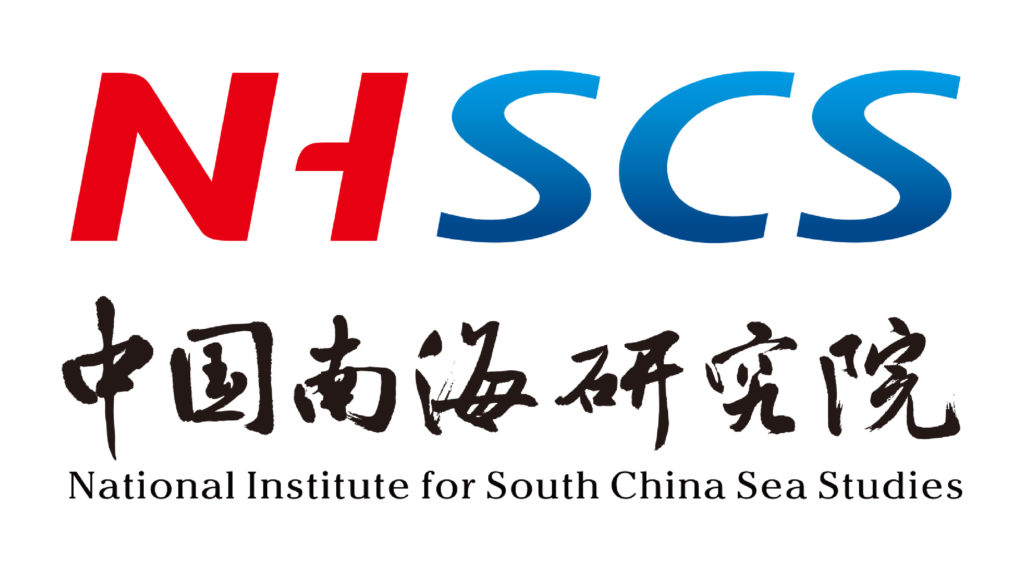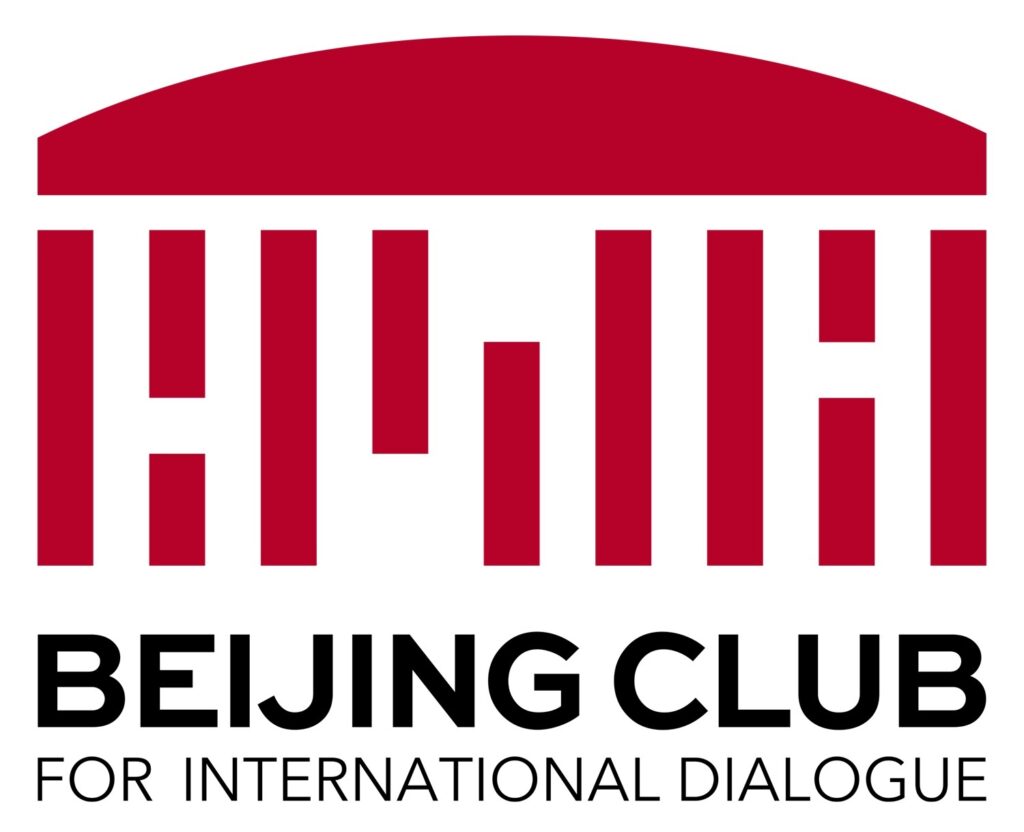December 12, 2024
9:00am - 4:20pm EST
Georgetown Marriott Hotel, Washington, D.C.
Metropolitan Ballroom, 2nd Floor
On December 12, the Institute for China-America Studies (ICAS) organized its 2024 Annual Conference, coinciding with the 10th anniversary of ICAS’ founding, in full in-person format at the Georgetown Marriott Hotel in downtown Washington, D.C. Dr. Hong Nong, Executive Director of ICAS, opened the conference and Dr. Wu Shicun, Chairman of ICAS’ Advisory Board, delivered the introductory remarks. In his heartfelt message, Dr. Wu spoke of the need for pragmatism as well as a recognition of shared responsibility in U.S.-China relations, given that both countries are indispensable to combating global challenges – be it the fight against climate change, stabilizing the global economy or addressing regional conflicts. Acknowledging that the re-election of Donald Trump had brought forth both uncertainty and familiarity, he noted that both countries had much to gain from working together – and even more to lose if they failed to do so. He expressed his hope that the U.S. and China will recognize that while competition was inevitable in their relationship, outright confrontation is not. And that on this basis, they should explore pathways to manage their differences constructively. The academic and think-tank communities on both sides of the Pacific are especially well-positioned in this regard and must discharge their responsibility by building cross-border bridges with robust guardrails.
Dr. Wu’s introductory remarks was followed by the highlight of the conference – the keynote remarks delivered by Mr. Qiu Wenxing, Minister at the Embassy of the People’s Republic of China in the U.S. The session was moderated by Professor Gordon Houlden, an ex-senior Canadian diplomat and Director Emeritus of the China Institute at the University of Alberta, Canada.
OPENING REMARKS:
Keynote Remarks:
In his prepared remarks, Minister Qiu acknowledged that U.S.-China relations were yet again at a crossroads and both sides needed to think through and work hard at consolidating the fragile stability in ties. Both sides should treat each other with respect, find a way to live alongside peacefully, maintain open lines of communication, prevent conflict, cooperate in areas of shared interest, and responsibly manage the competitive aspects of their relationship. For its part, China will maintain predictability in ties and has no intention of replacing the U.S. within the global system. On the other hand, the U.S. too should not challenge China’s red lines and paramount principles. These include the Taiwan question, China’s core interests, China’s path and system, and China’s right to development. Maintaining dialogue and expanding the pie of cooperation was the correct way forward.
During the discussion phase of the session, Minister Qiu admitted that on the Taiwan issue, discussions with the U.S. side had not made material improvement; to the contrary, matters had gotten worse. Whether it be the U.S.’ One China Policy or China’s One China Principle, he noted the common bottom line though is that there is only One China. Both sides need to commit resolutely on this point. He noted furthermore that the Taiwan question resides at the core of the core interests of China and thus if this ‘red line’ is breached, the bilateral relationship will inevitably suffer. On a question regarding President-elect Donald Trump’s threatened tariffs on China, Minister Qiu noted that both sides should try to create a favorable atmosphere so that they can communicate with each other and find a constructive way forward on their trade disputes.
Mr. Qiu responded to whether the Chinese side would attend Trump’s inauguration ceremony, stating that this is a challenging question but highlighted the frequent communication between the two sides on multiple levels. It demonstrated President-Elect Donald Trump and his team’s regard for the Chinese government, which is a positive signal.
The first panel of the ICAS 2024 Annual Conference featured four senior U.S. and Chinese academic and think-tank specialists who spoke of the elements of competition, as well as the underlying drivers of rivalry, in Sino-American relations. There was a consensus among the panelists that the bilateral relationship continues to remain at a difficult juncture and that optimism was hard to come by for the foreseeable future. There was an interactive zero-sum dynamic that had settled into the relationship and competing narratives – not necessarily based on objective fact – was accentuating the gap between the two sides. This new phase of rivalry had been inaugurated by the Trump administration in its National Security Strategy of December 2017, and the Biden administration’s approach towards China was built atop this foundation. China had adopted a more combative tone too in its relationship with the U.S. and the U.S.’ Indo-Pacific allies and partners.
MODERATOR: Liu Yawei (Senior Advisor on China, The Carter Center)
PANELISTS:
The panelists concurred that the need for trust-building was paramount so that both sides could avoid the shadow of war that lingers over the relationship. Lines of communication must remain open so that both know exactly what the other side is thinking. Both sides should be attentive to each other’s core interests and be willing to provide reassurances in this regard too. Furthermore, the U.S. and China should invest in building-out civilian-led crisis management mechanisms as well as confidence-building mechanisms. And as the two countries cooperatively work their way up from smaller issues to bigger ones, and hopefully match words with actions, a process of trust-building too will gradually settle into the relationship. Framing a common narrative, which could become a basis for common agreements, would also be helpful. The competitive tendencies in bilateral ties – of which there are many – need not deflect the relationship from this cooperative pathway, but it is essential that the terms on which the two sides compete be framed equitably and with fairness in mind.
Finally, it was noted that since the Taiwan issue is the most contested question that could potentially bring the two sides to the brink of war, both the U.S. and China bear a responsibility to tread cautiously. Beijing could make a very significant contribution in this regard by stating clearly that it does not have a deadline for resolving the Taiwan question peacefully. In fact, a direct statement by President Xi, personally and publicly, would go a long way to reducing the temperature across the strait and in U.S.-China relations.
Trade and technology decoupling resides at the heart of the new U.S.-China rivalry, ever since the Section 301 tariffs were introduced in the Summer of 2018 and the expansive information and communications technology and services (ICTS) Executive Order was issued in May 2019. The Biden administration turbocharged this process, designating three “families of technologies” – computing related technologies; biotechnologies and biomanufacturing; clean energy technologies – as “force multipliers” wherein the US would seek to “maintain as large a lead as possible” over China, including by resorting to “small yard, high fence” controls. Over the past year-and-a-half, the locus of technology competition, and decoupling, has shifted to the AI (artificial intelligence) arena, it was observed. Imposition of zero-sum strategic trade controls is transforming this competition in AI into a potential lose-lose proposition, with damaging collateral effects extending to as far out as the geopolitical calculus of war and peace in the Taiwan Strait.
MODERATOR: Sourabh GUPTA(Senior Fellow & Head, Trade ‘n Technology Program, Institute for China-America Studies)
PANELISTS:
The panelists noted that Beijing has been active too in the effort to compete and capture the commanding heights in the area of core and frontier technologies. Its strategy has essentially been two-fold: (a) to confront and overcome the main structural bottlenecks domestically and establish a “new innovation system” under the leadership of the Party’s Central Science and Technology Commission, while (b) deepening engagement with international scientists and cooperating more intensively within global technology ecosystems.
The panelists were quick to point out that it was not all doom-and-gloom though in the area of U.S.-China technology decoupling. To the contrary, there have been positive developments too – with none being more positive than the recent renewal, albeit quietly, of their landmark U.S.-China Science and Technology Agreement (STA) for a new five-year period. Both sides would be well-served by comprehensively documenting the benefits of bilateral S&T cooperation over the past four decades, it was observed – be it their joint work in clean energy, medicine, data science or new materials. It was also suggested that scientific communities, technology networks, and corporate researchers on both sides of the Pacific should maintain and deepen the pace of innovation. The more frequently that discoveries and breakthroughs occur, the greater are the chances that collaborative cross-border innovation ecosystems will be able to stay ahead of the zero-sum geopolitical conceptions of security hawks, ideological crusaders and nationalist forces on both sides.
The morning session was followed by the other highlight of the conference – a luncheon dialogue featuring Mr. Stephen Orlins, President of the National Committee on U.S.-China Relations (NCUSCR) and Ms. Amy Celico, an ex-U.S. diplomat and Partner at the Albright Stonebridge Group. In his initial remarks, Mr. Orlins credited the Biden administration for its work towards emplacing guardrails, gradually rehabilitating ties, consolidating the fragile stability, and making the bilateral relationship more predictable. The numerous dialogue channels that have been established in areas ranging from diplomacy, security, economy and trade to military communications and counternarcotics was welcomed. Most importantly, the people-to-people exchanges that undergird the political relationship were gradually being reestablished. This raises optimism for the future. This having been said, Mr. Orlins noted that the political establishment in Beijing had already moved on and was looking past Mr. Biden. They were assessing the impending policies of President-elect Trump with a ‘hope for the best, prepare for the worst’ mentality. All told, political turbulence can be expected in the year ahead and it is safe to say that one should buckle one’s seatbelt. He held out the hope though that the Trump team would take advantage of the potential for Chinese investments in America to build out the country’s infrastructure, create jobs, and benefit the lives of ordinary Americans.
Luncheon Dialogue:
During the discussion phase, Mr. Orlins and Ms. Celico touched on a host of issues, including the triangular U.S.-China-Russia relationship following a hoped-for cessation of hostilities in Ukraine. They also discussed President-elect Trump’s invitation to President Xi to attend his inauguration on January 20, 2025. While there was skepticism that President Xi would attend, it was suggested that China should take advantage of the opportunity and send a senior level delegation soon after the inauguration. Communication is paramount and every opportunity to educate or understand the other side should be grasped by both sides.
The first panel of the afternoon session featured four non-U.S. and non-Chinese policy specialists from Southeast and Northeast Asia, Europe, and Latin America who discussed third countries’ views of the U.S.-China relationship. Given that these open regional economies are at the forefront and oftentimes impacted by the day-to-day push-and-pull in U.S.-China ties, the panelists concurred that the concept of new triangular relationships is an established fact now in global geoeconomics and politics. The global debate over nearshoring, friendshoring and security-shoring can no longer be restricted solely to matters of trade, economics and high-technology investments either; it also encompasses issues such as the spread of Confucius Institutes in Latin America.
MODERATOR: YANG Li (Executive Director, Institute for China-Europe Studies)
PANELISTS:
The various third countries and regions, by-and-large, stand to benefit from a competitive U.S.-China dynamic, given the trade and investment deflection benefits that tend to arise. On the other hand, these third countries and regions are not standing by idly waiting for the benefits of Sino-American competition to drop. Rather, they are pressing ahead on their own with economic and trade liberalization measures so as to enhance their development potential and climb the ladder of prosperity. And notwithstanding the currents of economic populism, there has been a concerted effort in these countries and regions – be it in the form of RCEP, CPTPP or the EU-Mercosur trade agreement – to deepen their engagement with globalization. Southeast Asia’s ‘open regionalism’ policies are emblematic of this trend. Europe, Latin America and Southeast Asia are also deepening their economic relations with China. The triangular relationships that exist today are the product of many decades of engagement and interaction – they were not created yesterday. As such, the expectation of the existing and incoming U.S. administrations that they could decouple years and decades of integration though the tariff instrument is premature, at best, and irrational and out-of-touch, at worst.
The panelists concurred that the various third countries and regions would much prefer that they did not have to choose between the U.S. and China. Both could be engines of development and prosperity for them. That said, there was a commitment credibility gap, in their view, when it comes to the U.S. and a capability trust gap when it comes to China. But with the incoming Trump administration threatening extortive tariffs on deeply integrated trade partners in North America, Europe and Asia, the view was expressed that a significant opportunity to deepen trade and investment ties with China could be on the anvil over the next four years.
The final panel of the ICAS 2024 Annual Conference featured four seasoned professionals who discussed the role of people-to-people exchanges as a ballast to the U.S.-China relationship. At a time when the potential exists for mutual suspicion to accentuate polarization and division between these two great countries and societies, a broadly shared view was expressed that exchanges and dialogue are among the most effective tools in encouraging understanding between the two sides. The U.S. and China’s ties are not defined solely, after all, by treaties and agreements, but also by the interaction and engagement of the peoples of the two countries. It is only understandable that the two countries see political and policy matters rather differently, given the very different political systems, different beliefs, and different ways of approaching matters in the U.S. and China. But it is engagement and the openness to listening to views and arguments that might be uncomfortable at first to hear which will ultimately foster an appreciation of the other side’s viewpoint, help both sides overcome conflicting narratives, and lead potentially to an easing of tensions. Lack of exchanges and communication is the real existential threat, it was observed, rather than the geopolitical policy choices the two governments might make.
MODERATOR: Eric RICHARDSON (Founding President, INHR; China Coordinator, PAX sapiens)
PANELISTS:
The panelists elaborated on the role of academic and student exchanges given that such exchanges have been a major facet of U.S.-China engagement over the past 50 years. From the Chinese side, almost 3 million students have traveled to America for higher education during this period with the numbers peaking at 370,000 in 2019. Although it might be hard to maintain such high numbers given the range of global educational options at their disposal, Chinese students will continue to make the U.S. their number #1 destination in their search for a top-notch education. The hope, furthermore, is that the incoming Trump administration will not resort to or condone racially coded attacks. Trump 1.0 had been a low point for Chinese scholars and students in the U.S. on this front. Regarding the U.S. side, it is critically important that the number of American students studying in China be increased. At its peak in 2011-12, there were approximately 15,000 American students in China but that number dwindled to the few hundreds during the pandemic. There is guarded optimism though for the return of a greater number of U.S. students in China, now that President Xi, at the Woodside Summit, has also made this a priority.
China’s loosening of travel-related visa requirements was welcomed by the panelists as was the State Department’s lowering of the Mainland’s Level 3 travel advisory status (Reconsider Travel) to Level 2 (Exercise Increased Caution). In conclusion, it was hoped that the two sides, including their think-tanks which serve as unique platforms for dialogue free from the constraints of government and diplomacy, would take advantage of these opportunities, including by prioritizing think tank-to-think tank collaborations as a cornerstone of U.S.-China relations.





The Institute for China-America Studies is an independent nonprofit, nonpartisan research organization dedicated to strengthening the understanding of U.S.-China relations through expert analysis and practical policy solutions.
1919 M St. NW Suite 310,
Washington, DC 20036
icas@chinaus-icas.org
(202) 968-0595
© 2025 INSTITUTE FOR CHINA-AMERICA STUDIES. ALL RIGHTS RESERVED.